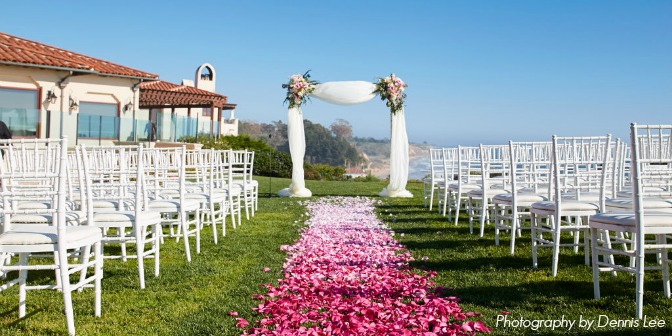
From the Experts, Wedding Planning Tips
Making the Move to Destination Wedding Planning: Part I
QC tutor Heather Vickery is the Owner and Event Director of Greatest Expectations Special Events and Weddings, one of Chicago’s most celebrated event planning and design firms. All photos in this post are from events produced by Greatest Expectations.
You love to travel; you love to plan weddings—so destination wedding planning seems like a natural transition, right? Well, it might be, but there is a lot to consider when adding this to your list of services.
When it comes to wedding planning, there are a lot of items that are the same no matter where the wedding will take place. I am not going to address anything that overlaps. So what makes destination wedding planning different from planning local events? Here are several key points.
This is not a vacation
First, let me be very clear with you: destination wedding planning is really (really) hard work. You are not on vacation. In some cases, you may be in the most beautiful place on earth and never have a waking hour to enjoy it. You cannot go into this thinking “I am going to have the best time!” because you will be sorely disappointed. There is a tremendous amount of work that goes into these destination weddings.
When we worked in Santa Barbara last February, I am pretty sure we walked about 30,000 steps a day trekking all over the stunning Bacara Resort because we had events happening throughout the massive property. Bring appropriate clothing and shoes. You still need to look professional but if you are a sweaty mess or unable to walk because you attempted to run around in heels, you will not be able to do your job very well.

Photography by Dennis Lee
If you budget your time properly, you might be able to add a day onto the end of the event for a little rest and relaxation (which will, undoubtedly, be well deserved) but it simply does not always work that way. I do not suggest having “free” days prior to the event because there is always so much last minute work that needs to be done that it is not restful in the least. I do, however, suggest that you plan to be on property at least 36 hours before your first event is scheduled to take place. Travel delays are a real concern with destination weddings and you cannot risk not being onsite for your events.
Location, location, location
Let’s say you have clients that want a destination wedding but they are not sure where to go. They could be thinking of something tropical or adventurous. Near an ocean or perhaps a mountain (or both!), Paris or the Italian countryside. I have done destination weddings in all sorts of places from the Caribbean to Southern California to Cape Cod. Destination simply means the wedding is not in the hometown of the couple.


Photography by Julia Franzosa
If clients want a destination wedding, they likely have some idea of the locale they are interested in. Sit down with them and really talk through their interests and options. Pinning them down on how many guests they expect is important because it is impossible to research venues if you don’t know guest count. Also, how many events will they be hosting and what is their hardline budget?
Next you need to do the legwork. If you are not already familiar with the types of destination your clients are interested in, I highly recommend partnering with a travel expert that can help you navigate this often daunting task. I have two travel experts I work with. Based on my clients’ needs and interests, I partner with the appropriate travel expert to research and source venues.

Photography by Dennis Lee
What if your client wants a wedding in a Scottish castle (yes, that really happens) or a small, sleepy seaside fishing village? They might want places where there are no big resorts so you then need to consider renting out entire small hotels or larger homes to accommodate the guests.
Once your clients have received a list of possible venues that includes websites, photos and pricing, they may want to do in person site visits. This may be something you, as the planner, would do with the client or it may be something you or the client do on your own. Personally, I like to be on site for these visits as I see things differently than the clients do and it really helps when planning the logistics. If it takes 20 minutes to walk from one side of the property to another, that has a great impact on your final event timeline.